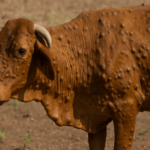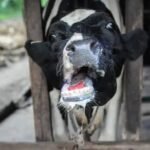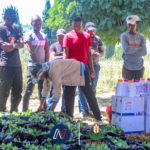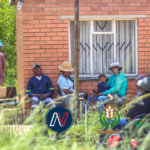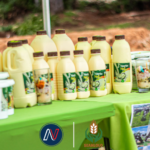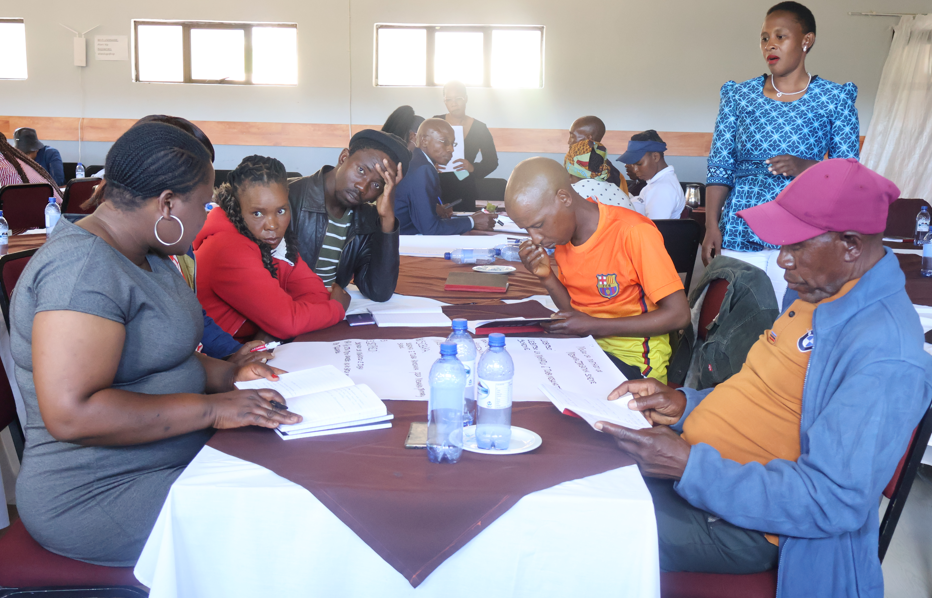The Ministry of Agriculture, Food Security and Nutrition, through the Smallholder Agricultural Development Project II (SADP II), has completed a week-long national workshop training farmers and irrigation associations on the legal use and management of water for agriculture.
The training brought together over 30 representatives made up of members of Mishaka, Mabeoana and Liholong irrigation schemes, as well as local community leaders, youth and women groups.
The participants were guided through the process of legally registering their irrigation associations and developing constitutions that would govern water use, management and accountability within their communities.
The training was facilitated by Mamotume Maliehe, Registrar for Civil Society Groups from the Ministry of Law and Justice, who said the purpose was to help water users form legally recognised and transparent organisations.
“Whenever ten or more people come together to pursue a common goal, that grouping is identified as an association and that association must be registered,” Maliehe explained, noting the law recognises the importance of organisation.
“It brings order, fairness and accountability. An unregistered association risks operating outside the law, which can cause problems in the long run,” she said.
She said the facilitation was part of the government’s joint effort to ensure that farmers benefiting from irrigation systems funded by SADP II comply with the Societies Act of 1966.
“It is every Mosotho’s responsibility to know and abide by this law,” she emphasised.
According to SADP II Irrigation Officer Tšitso Marabe, the training was necessary to formalise water users and irrigation groups in Lesotho, most of which previously operated without legal frameworks.
“We learned that many irrigation facilities introduced by government projects lacked proper governance structures, so registering these groups legally will protect the systems from being misused or claimed by individuals. It will also make it easier for them to open bank accounts, form partnerships and access markets.”
Marabe added that formalising irrigation associations also protects water as a shared natural resource.
“Water doesn’t belong to anyone, thus when we regulate its use, we protect the source, the system and the livelihoods that depend on it.”
He said the goal was not only to promote irrigation as a tool for food production, but also to teach farmers to view it as part of agribusiness that must be managed responsibly.
“Business and law are not separate in agriculture, in both, good governance ensures sustainability.”
For Lefa Maime, chairperson of the Mishaka Irrigation Scheme, the workshop was an eye-opener.
“Before, we didn’t realise how poor communication between farmers and livestock owners was harming our water sources,” he said.
He added, “Different users draw water for different purposes, for animals, vegetables and households, and without coordination, the systems quickly deteriorate. This training has helped us see the importance of structure and clear roles.”
Maime said the workshop also helped clarify leadership gaps within his association.
“We had a leadership structure, but it wasn’t well-defined. Now, with a proper constitution, we know exactly who does what and how to respond to challenges like water pollution or overuse,” he said.
For newly formed groups like Liholong Irrigation Scheme in Thaba-Bosiu, the timing could not have been better. The group, made up of 17 horticulture farmers, is about to receive new irrigation infrastructure from SADP II.
“‘This workshop came at the right time,” said ‘Matsie Mofokeng, one of the founding members.
“We are learning how to manage water wisely, how to handle finances within the association and how to take care of the irrigation technology responsibly.”
Mofokeng added that the workshop also helped dispel doubts in her community about SADP II’s support.
“Some people thought the project was just talk. But after this, we have seen that SADP II truly delivers. This training proves that they are investing in long-term solutions.”
According to Marabe, Maseru marked the final leg of similar irrigation governance workshops held in all ten districts of Lesotho. Each session concluded with participants drafting constitutions for both their irrigation schemes and water users associations, totalling six new legal documents by the end of the week.
As Lesotho continues to face the twin pressures of climate change and water scarcity, responsible water management has become central to the country’s food production strategy. The Ministry hopes that by equipping farmers with legal and technical knowledge, irrigation systems will remain sustainable for future generations.
“We are a water-rich country by name,” Maime reflected, “but without care and knowledge, even rich resources can run dry. This training is a reminder that water is life — and it must be protected.”

